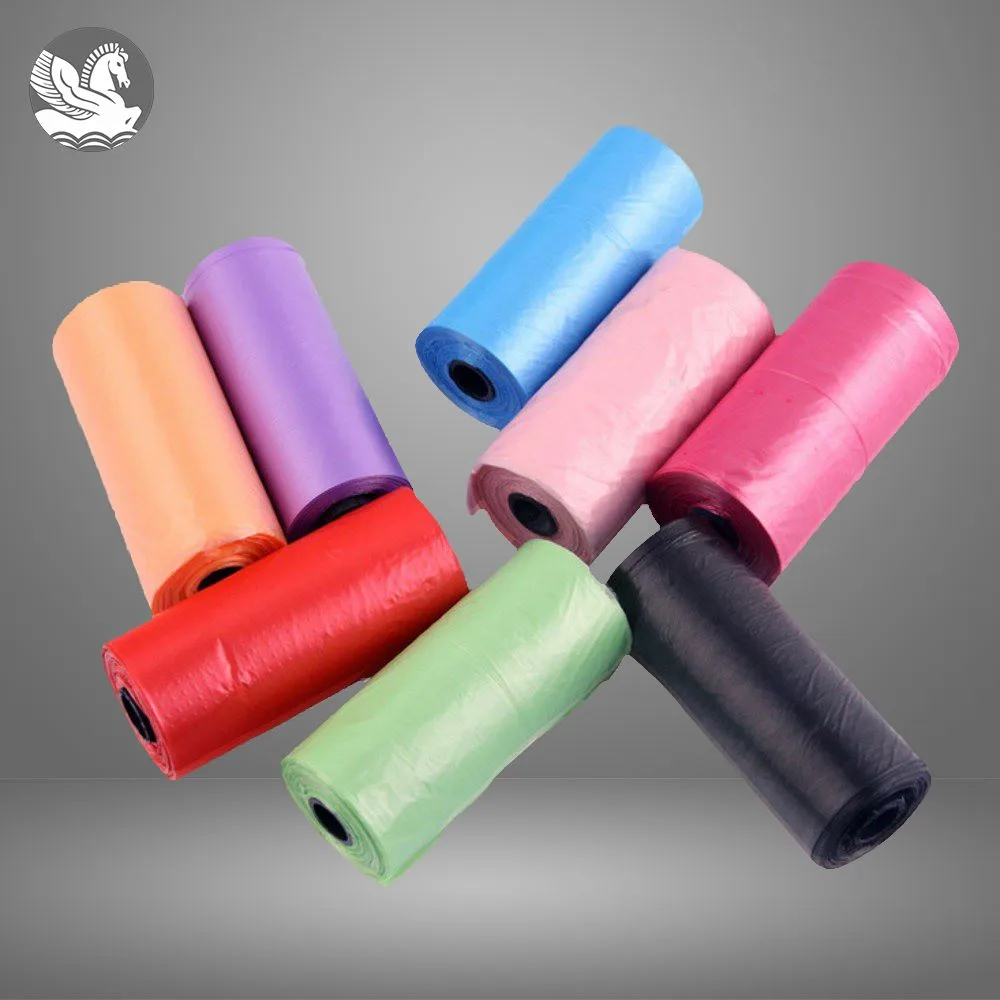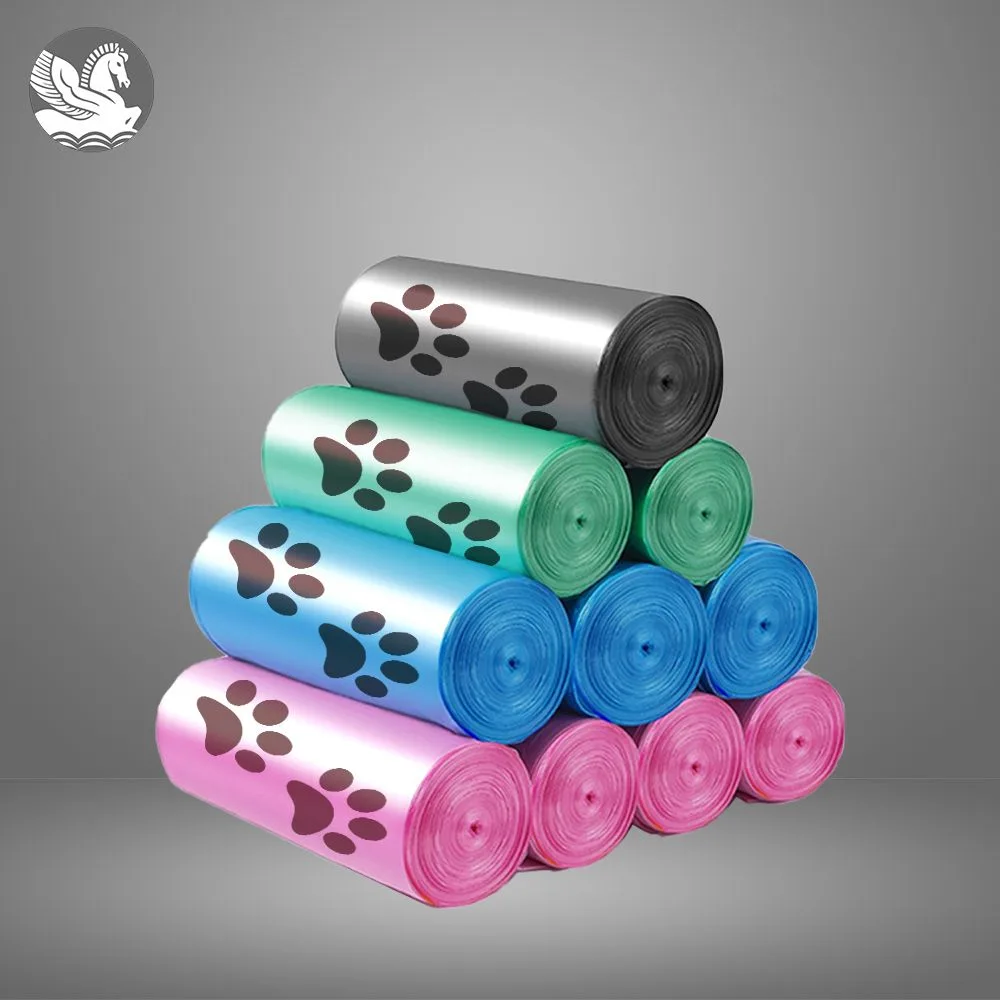Introduction
In today's world, where environmental concerns are at the forefront, it is crucial to adopt sustainable practices in our daily lives. One such area where we can make a significant impact is waste management. Embracing biodegradable garbage bags for a sustainable future is a small yet powerful step toward reducing our carbon footprint.
These eco-friendly bags offer numerous benefits while minimizing the harm caused by traditional plastic bags. In this article, we will explore the features, advantages, and importance of using biodegradable garbage bags, and how they contribute to a cleaner and greener planet.
Embracing Biodegradable Garbage Bags for a Sustainable Future
Using biodegradable garbage bags is not just a passing trend; it is a conscious choice made by individuals and communities alike. These bags offer a sustainable alternative to traditional plastic bags, reducing our reliance on non-biodegradable materials.
By embracing biodegradable garbage bags, we take a proactive step toward preserving our environment for future generations. These bags are designed to break down naturally over time, minimizing their impact on landfills and ecosystems. Let's explore the many benefits of embracing biodegradable garbage bags:
Benefits of Biodegradable Garbage Bags
Reduced Environmental Impact: Unlike conventional plastic bags that take hundreds of years to decompose, biodegradable garbage bags break down more quickly, reducing the strain on landfills and minimizing pollution.
Eco-Friendly Materials: Biodegradable garbage bags are typically made from renewable resources such as plant-based materials or recycled plastics. By using these bags, we reduce our reliance on fossil fuels and promote sustainable sourcing.
Less Wildlife Harm: Traditional plastic bags pose a significant threat to wildlife, with animals often mistaking them for food or becoming entangled in them. Biodegradable bags help protect wildlife by minimizing these risks.
Reduced Carbon Footprint: Manufacturing biodegradable garbage bags produces fewer greenhouse gas emissions compared to conventional plastic bags. By choosing these bags, we contribute to the fight against climate change.
Versatile and Durable: Biodegradable garbage bags are available in various sizes and strengths, making them suitable for a wide range of waste disposal needs. They are just as strong and reliable as traditional plastic bags.
Promote Sustainable Practices: By using biodegradable garbage bags, we set an example for others to follow. It encourages a shift toward eco-friendly alternatives, inspiring positive change in waste management practices.
How Biodegradable Garbage Bags Work
Biodegradable garbage bags are designed to degrade naturally when exposed to specific environmental conditions. The precise decomposition process depends on the materials used in the bag's construction. Some biodegradable bags rely on microorganisms in the soil to break them down, while others break down through exposure to sunlight or heat. These bags undergo a natural degradation process, leaving behind fewer harmful residues compared to traditional plastics.
Making the Switch: Tips for Using Biodegradable Garbage Bags
Check for Certification: Look for certifications like "ASTM D6400" or "EN 13432" to ensure that the biodegradable garbage bags you choose meet established industry standards.
Proper Disposal: Dispose of biodegradable bags in designated composting facilities whenever possible. This ensures that they are exposed to the right conditions for efficient decomposition.
Avoid Contamination: Keep non-biodegradable waste out of biodegradable garbage bags to prevent contamination. Sort and separate your waste to ensure the bags are used for their intended purpose.
Educate Others: Spread awareness about the benefits of biodegradable garbage bags among your friends, family, and community. Encourage them to make the switch for a more sustainable future.
Support Legislation: Advocate for policies and regulations that promote the use of biodegradable materials and discourage single-use plastics. Join local initiatives and support organizations working toward a greener planet.
Frequently Asked Questions (FAQs)
Q: Are biodegradable garbage bags as durable as traditional plastic bags?
A: Yes, biodegradable garbage bags are designed to be just as strong and reliable as traditional plastic bags. They can handle various types of waste without compromising on durability.
Q: Can I use biodegradable garbage bags for both wet and dry waste?
A: Absolutely! Biodegradable garbage bags are suitable for both wet and dry waste disposal. They are designed to withstand moisture and maintain their structural integrity.
Q: How long does it take for biodegradable garbage bags to decompose?
A: The decomposition time varies depending on the specific materials used in the bag and the environmental conditions. Generally, biodegradable garbage bags can decompose within a few months to a couple of years.
Q: Can I reuse biodegradable garbage bags?
A: While some biodegradable bags are designed for single-use, others can be reused multiple times. Check the packaging or manufacturer's instructions for guidance on reuse.
Q: Are biodegradable garbage bags more expensive than traditional plastic bags?
A: Biodegradable garbage bags may have a slightly higher upfront cost due to the use of eco-friendly materials. However, their long-term benefits, environmental impact, and contribution to waste reduction make them a worthwhile investment.
Q: Do biodegradable garbage bags require special disposal methods?
A: While biodegradable bags are designed to break down naturally, it is still essential to dispose of them properly. Check local guidelines and composting facilities for appropriate disposal methods in your area.
Conclusion
Embracing biodegradable garbage bags is a step toward a sustainable future. By choosing these eco-friendly alternatives, we actively contribute to waste reduction, environmental preservation, and the well-being of our planet. The benefits of biodegradable garbage bags go beyond convenience—they offer a tangible solution to the global waste crisis. Let's make a conscious choice to protect our environment, one bag at a time.




No comments:
Post a Comment